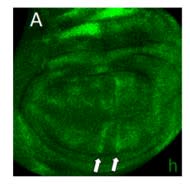
Cat. #151626
A375P beta6-puro Cell Line
Cat. #: 151626
Sub-type: Continuous
Unit size: 1x10^6 cells / vial
Availability: 3-5 days
Organism: Human
Disease: Cancer
Model: Transgenic
£575.00
This fee is applicable only for non-profit organisations. If you are a for-profit organisation or a researcher working on commercially-sponsored academic research, you will need to contact our licensing team for a commercial use license.
Contributor
Inventor: John Marshall
Institute: Queen Mary University of London
Tool Details
*FOR RESEARCH USE ONLY
- Name: A375P beta6-puro Cell Line
- Tool sub type: Continuous
- Parental cell: A375P
- Organism: Human
- Disease: Cancer
- Growth properties: A375P melanoma cells stably expressing integrin beta 6
- Model: Transgenic
- Description: The A375P beta6-puro Cell Line is a useful model for studying the function and activity of beta 6 integrin when used as a matched pair with the parent A375 line. A375 melanoma cells endogenously express a variety of integrins, but not beta 6. These cell lines have been used to validate the activity and selectivity of AvB6-binding peptides.
- Production details: The human melanoma cell line A375P was infected with pBabe retroviruses encoding puromycin resistance or, in addition, cDNA for human integrin beta 6. Cells were selected in puromycin (1.25 ug/mL) followed by magnetic bead sorting, using 10D5 (mouse anti-avh6; Chemicon International), according to the manufacturerÄË?Â?Âs instructions (Dynal; Invitrogen). The avb6 expression can drift so recipients must check by flow cytometery after they have been in continuous passage, at least once a ...
- Biosafety level: 1
- Recommended controls: A375P parental line
- Cellosaurus id: CVCL_5F66
Target Details
- Target: Integrin beta 6
Handling
- Format: Frozen
- Growth medium: DMEM + 10S/1.25ug/ml puromycin. Antibotic is not required all the time.
- Unit size: 1x10^6 cells / vial
- Shipping conditions: Dry ice
- Storage conditions: Vapor phase of liquid nitrogen. Storage at -70° C will result in loss of viability.
- Mycoplasma free: Yes
References
- DiCara et al. 2007. J Biol Chem. 282(13):9657-65. PMID: 17244604.
- Structure-function analysis of Arg-Gly-Asp helix motifs in alpha v beta 6 integrin ligands.



